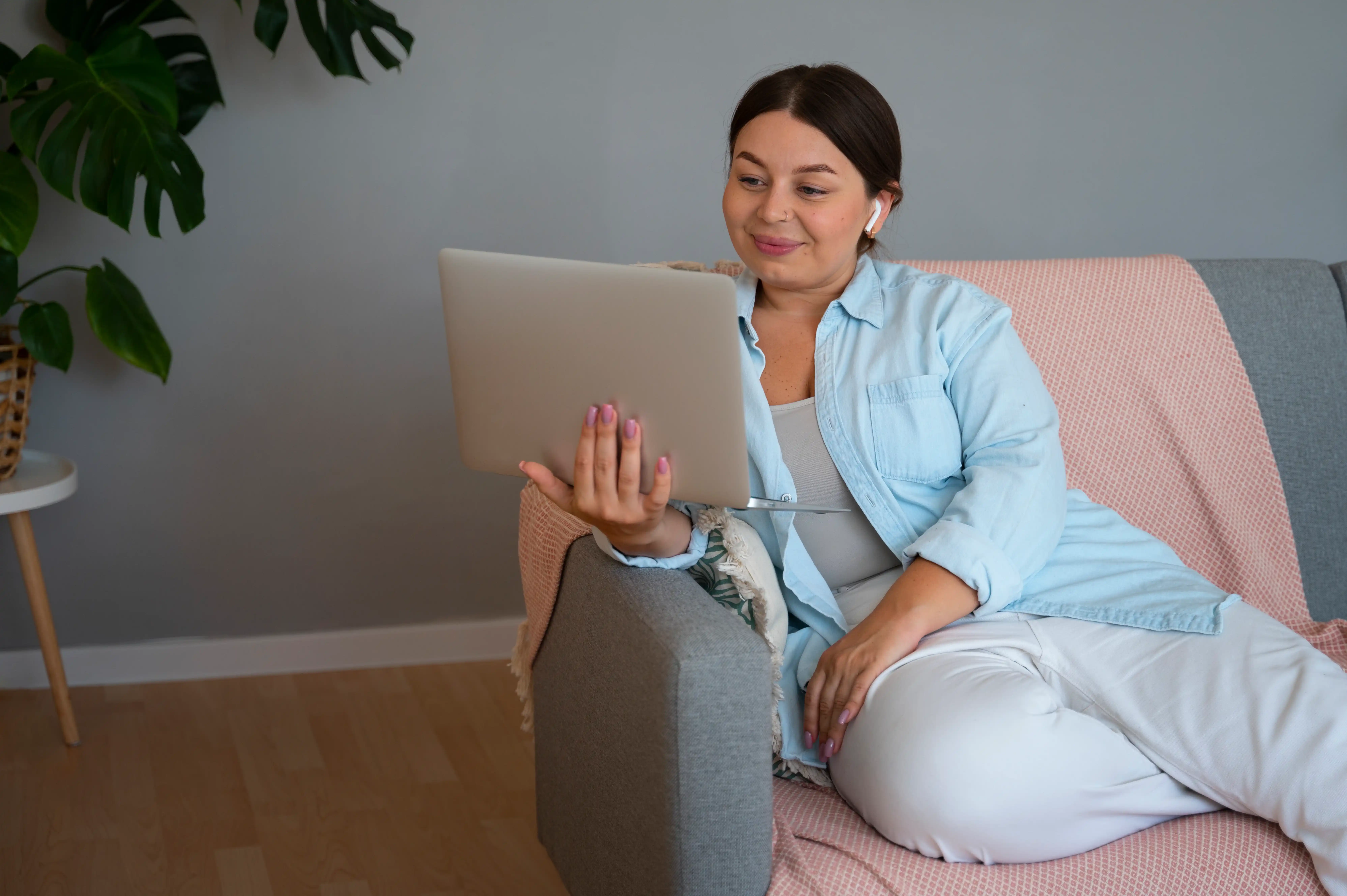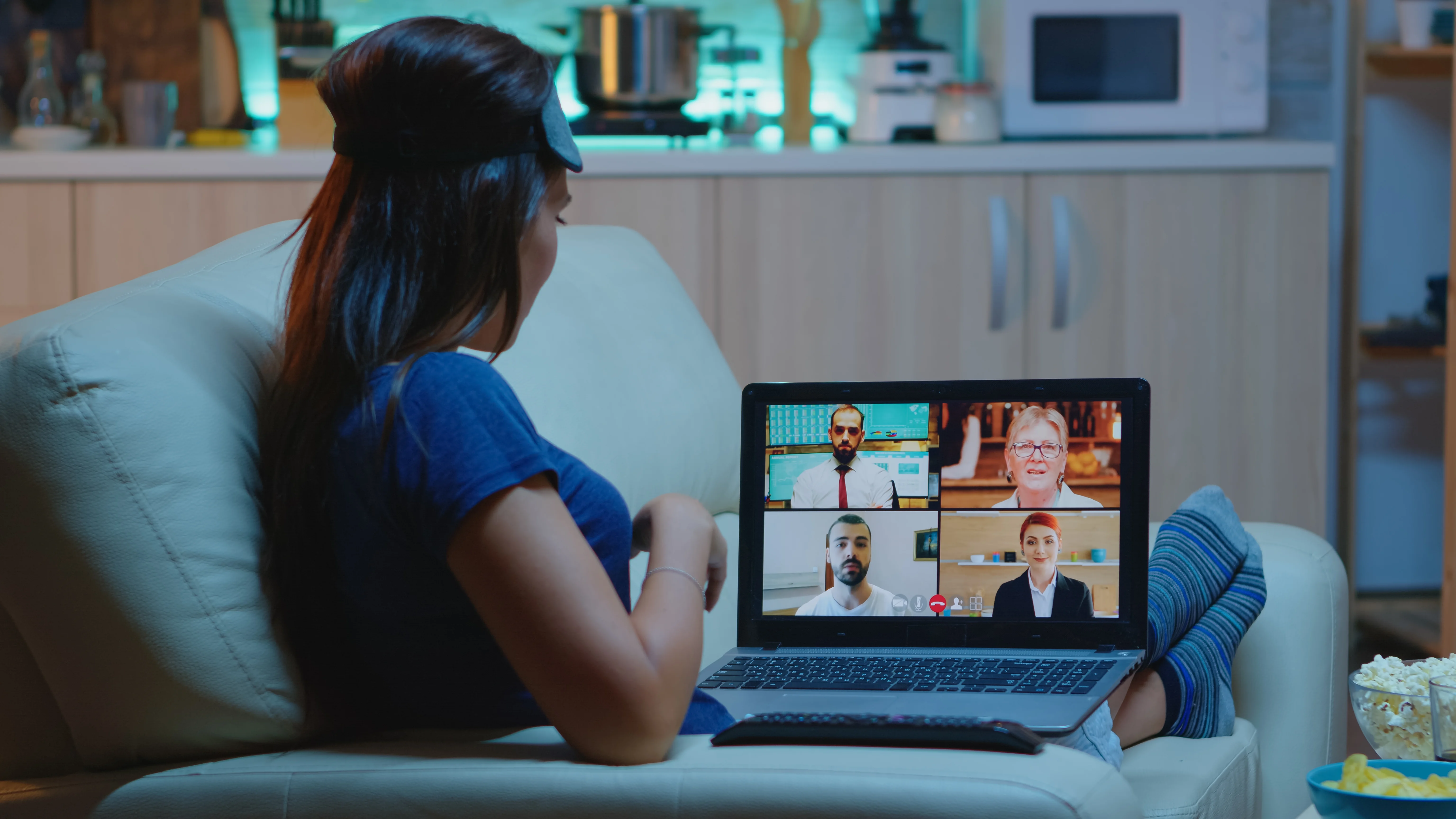Online Therapy vs In-Person Counselling: What Works Best?
Introduction
Mental healthcare in India has rapidly evolved, with both online therapy and in-person counselling becoming widely accessible. As digital health platforms like HopeQure gain momentum, users now face a common question: which approach is more effective? This blog explores the pros and cons of both, backed by expert opinion and research, helping you make an informed choice for your mental well-being.
1. Accessibility & Convenience

Ready to experience therapy on your own terms? Book an online session with HopeQure today.
|
Feature
|
Online Therapy
|
In-Person Counselling
|
|
Location flexibility
|
Available anywhere
|
Requires physical presence
|
|
Scheduling
|
Highly flexible
|
Limited to clinic hours
|
|
Commute
|
No commute
|
Commute required
|
|
Availability in remote areas
|
Yes
|
Often not available
|
|
Time efficiency
|
Saves time
|
Travel + wait time
|
|
Mobility support
|
Ideal for mobility-challenged individuals
|
May be difficult
|
|
Emergency access
|
Easier to schedule urgent sessions
|
Not readily available
|
|
Work-life fit
|
Convenient for busy schedules
|
May clash with work timings
|
|
Anonymity
|
Better (from home)
|
Lower (clinic setting)
|
|
Accessibility tech
|
App/web platforms supported
|
Not dependent on tech
|
|
Online therapy has significantly improved access to mental health support. It eliminates the need to travel, reduces wait time, and offers therapy to people in remote or under-served areas. Sessions can be scheduled with ease, even in the evenings or on weekends, making it ideal for working professionals, students, or caregivers.
|
|
|
- Accessible from any location
- Flexible appointment scheduling
- Eliminates commute time
- Ideal for remote and rural users
- Saves money on travel
- Supports clients with mobility issues
- Works well for shift workers or busy professionals
- Sessions can be scheduled during off-hours
- Suitable for frequent travelers
- Eliminates waiting room stress
2. Privacy and Confidentiality

|
Feature
|
Online Therapy
|
In-Person Counselling
|
|
Privacy level
|
High (from home, private space)
|
Moderate (clinic exposure possible)
|
|
Encryption
|
End-to-end encrypted platforms
|
Varies by provider
|
|
Stigma
|
Reduced social visibility
|
Greater risk of being seen
|
|
Data storage
|
Digital, secure platforms
|
Paper or unsecured files
|
|
Anonymity option
|
Yes (video off, pseudonyms possible)
|
Not easily anonymous
|
|
Logins & identity
|
Secure logins
|
Manual intake
|
|
Family involvement
|
Easier to include digitally if desired
|
Limited to clinic space
|
|
Third-party interaction
|
None
|
Receptionists, waiting room exposure
|
|
Documentation
|
Stored securely online
|
Physical files
|
|
Access from anywhere
|
Yes
|
No
|
|
Privacy is a crucial factor in mental health. Online therapy provides a confidential environment where clients can speak freely from their own homes. For many, this reduces the fear of social stigma. Encrypted sessions on secure platforms protect user data and provide peace of mind.
|
|
|
- Conducted in the privacy of your home
- Avoids visibility in public clinics
- Reduced fear of social stigma
- Encrypted sessions ensure data protection
- HIPAA and GDPR compliant platforms
- Confidentiality with secure logins
- No receptionist or third-party exposure
- No physical files to store
- Private audio or text sessions possible
- Offers anonymity for first-time users
3. Therapeutic Effectiveness

Want proven mental health support from the comfort of home? Start your first therapy session with HopeQure.
|
Feature
|
Online Therapy
|
In-Person Counselling
|
|
Common conditions treated
|
Anxiety, depression, stress, relationship
|
All, including severe psychiatric cases
|
|
Cognitive Behavioral Therapy
|
Highly effective
|
Equally effective
|
|
Comfort in communication
|
Higher in personal setting
|
Better for non-verbal cues
|
|
Familiar setting
|
User’s own home
|
Therapist’s office
|
|
Client openness
|
Often quicker due to comfort
|
May take longer
|
|
Use of tech tools
|
Digital worksheets, mood trackers
|
Less tech integration
|
|
Session regularity
|
Easier to maintain schedule
|
Higher chance of disruption
|
|
Therapy formats
|
Video/audio/text possible
|
Primarily face-to-face
|
|
Suitability for trauma cases
|
Limited
|
More appropriate
|
|
Therapist observation
|
Limited to screen
|
Full body language visible
|
|
Therapeutic outcomes in online and in-person therapy are similar for most conditions. Cognitive Behavioral Therapy (CBT), which is highly structured, has shown strong results online. Online sessions allow users to open up faster due to being in a familiar, safe space.
|
|
|
- Effective for anxiety and depression
- Supports CBT and structured therapies
- Enables comfort through familiar setting
- Reduces initial hesitation to speak
- Comparable success rates to in-person therapy
- Enables journaling and digital worksheets
- Provides recorded progress (if opted)
- Therapy from the comfort of home
- Regular sessions lead to consistency
- Digital tools enhance therapeutic structure
4. Cost and Affordability

|
Feature
|
Online Therapy
|
In-Person Counselling
|
|
Consultation fee
|
Generally lower
|
Varies, usually higher
|
|
Travel expenses
|
None
|
Added cost
|
|
Hidden charges
|
Transparent pricing
|
Possible (facility fees, parking, etc.)
|
|
Session flexibility
|
Package and subscription options
|
Mostly per session
|
|
Self-help tools
|
Often included or free
|
Rare
|
|
Group therapy options
|
Available at lower costs
|
Not always offered
|
|
Accessibility to discounts
|
Platform-wide offers
|
Less frequent
|
|
Financial aid or plans
|
Sometimes available
|
Rarely available
|
|
Overall affordability
|
More economical in the long run
|
Higher cost structure
|
|
Value for money
|
High with additional tools included
|
Depends on clinic
|
|
Online therapy tends to be more cost-effective. It removes infrastructure, travel, and administrative costs. Many digital platforms also provide access to free mental wellness resources, making care more accessible to a wider population.
|
|
|
- Lower consultation fees
- No travel or parking costs
- No waiting room downtime
- Free self-help tools available
- Subscription models available
- No clinic maintenance fees
- Better price transparency online
- Saves time = indirect cost savings
- Offers budget flexibility
- Group sessions are often cheaper
5. Therapist Availability and Choice

Looking for the right therapist match? HopeQure lets you choose based on language, specialization, and experience. Explore our therapist directory.
|
Feature
|
Online Therapy
|
In-Person Counselling
|
|
Therapist pool
|
Nationwide network
|
Local or city-based only
|
|
Language options
|
Wide range available
|
Limited
|
|
Gender preference
|
Easily filterable
|
Often unavailable
|
|
Specializations available
|
Broad (e.g., CBT, family, adolescent)
|
May not cover all specializations
|
|
Switching therapists
|
Quick and simple
|
Less convenient
|
|
Second opinions
|
Accessible
|
Logistically harder
|
|
Availability of time slots
|
Extended hours (evenings/weekends)
|
Limited to business hours
|
|
Urgent care access
|
Faster slot availability
|
Waitlist delays
|
|
Regional access
|
Connect with out-of-city experts
|
Usually limited to city
|
|
Niche or rare therapy types
|
More likely to find online
|
Rare to access offline
|
|
With online therapy, clients can choose from a wider network of therapists. Factors such as language preference, gender, or specialization can be matched more easily online. This increases the chances of finding the right therapeutic match quickly.
|
|
|
- Nationwide therapist access
- Filter by language or gender
- Choose therapists by specialty
- Access to lesser-known experts
- Flexible session timings
- Immediate slot availability
- Better fit = better outcomes
- Easy to change therapists
- Easier second opinions
- More diversity in therapy styles
6. Client-Therapist Relationship

|
Feature
|
Online Therapy
|
In-Person Counselling
|
|
Initial comfort level
|
High in home setting
|
Often higher with direct contact
|
|
Communication flexibility
|
Video, audio, chat formats
|
Face-to-face only
|
|
Use of tools and journals
|
Tech-enabled tools for tracking
|
Manual methods
|
|
Emotional safety
|
Comfortable opening up remotely
|
Immediate physical presence
|
|
Progress tracking
|
Structured digital records
|
Therapist’s notes
|
|
Feedback loop
|
Easier through integrated tools
|
Mostly verbal
|
|
Visual cues and empathy
|
Somewhat limited
|
Full body language
|
|
Support between sessions
|
Messages, app tools
|
Rarely available
|
|
Client empowerment
|
More autonomy and flexibility
|
Structure led by therapist
|
|
Continuity in relationship
|
Sustained through digital continuity
|
More vulnerable to location/time
|
|
The client-therapist bond is foundational to effective therapy. Online therapy builds trust over time using video/audio interactions and structured check-ins. While some may find the virtual format less personal, consistency and clarity of communication can compensate.
|
|
|
- Builds over consistent sessions
- Use of weekly mood check-ins
- Allows reflection between sessions
- Written feedback tools available
- Digital reminders support consistency
- Shared journals/notes with therapist
- Can feel safer to open up online
- Choice of video/audio/text formats
- Tech-enabled rapport tracking
- Structured follow-ups improve trust
7. Tech Literacy and Connectivity

|
Feature
|
Online Therapy
|
In-Person Counselling
|
|
Device requirement
|
Smartphone, tablet, or computer
|
Not required
|
|
Internet dependency
|
Requires stable connection
|
No dependency
|
|
Tech skill level
|
Basic navigation needed
|
None
|
|
Senior-friendly
|
May be challenging initially
|
More suitable
|
|
Video/audio quality
|
Depends on user bandwidth
|
Always clear
|
|
Platform familiarity
|
Some onboarding required
|
Not needed
|
|
Offline accessibility
|
Not possible
|
Always accessible
|
|
App installation
|
Sometimes needed
|
Not applicable
|
|
Support for tech issues
|
Provided by platforms like HopeQure
|
Not relevant
|
|
Alternative formats
|
Audio-only or chat options available
|
Not applicable
|
|
Online therapy depends on the user’s ability to operate devices and access stable internet. While this is widely available in urban India, some rural or older users may face difficulty navigating apps or video calls.
|
|
|
- Requires stable internet connection
- Smartphone or laptop needed
- Video/audio platform familiarity helpful
- Seniors may need on-boarding
- Low-data mode features available
- Can offer chat-based alternatives
- Screen fatigue may be a factor
- Basic device literacy required
- Some sessions can be audio-only
- HopeQure provides tech support
8. Emergency Situations

Get timely help and referrals for critical mental health needs. Connect with certified psychologists now.
|
Feature
|
Online Therapy
|
In-Person Counselling
|
|
Psychiatric emergencies
|
Not suitable
|
Better managed in person
|
|
Suicide risk response
|
Limited (refer to emergency services)
|
Immediate help possible
|
|
Medication supervision
|
Not available
|
Available if clinic supports
|
|
Hospital referrals
|
Via online network
|
Direct access
|
|
Crisis intervention
|
Triage possible, but slower
|
Immediate escalation
|
|
Physical safety assurance
|
Not possible online
|
Yes
|
|
Follow-up after emergency
|
Digital but may lack immediacy
|
Timely and localized
|
|
On-call crisis staff
|
May not be always available
|
Often present
|
|
Coordination with caregivers
|
Online updates possible
|
In-person collaboration
|
|
Use in hybrid model
|
Can be supportive post-incident
|
Often primary choice
|
|
Severe psychiatric cases may require in-person intervention. Online platforms are excellent for moderate to mild mental health conditions but must refer high-risk cases to offline support networks promptly.
|
|
|
- Not suitable for psychotic breaks
- In-clinic intervention may be faster
- Easier emergency referrals in person
- Online therapists can triage urgency
- Crisis helplines may still be needed
- Medication management needs doctor presence
- Emergency follow-ups may need hospital
- Online therapists trained in red flag detection
- HopeQure provides referral pathways
- Use hybrid care for high-risk cases
9. Continuity of Care

|
Feature
|
Online Therapy
|
In-Person Counselling
|
|
Follow-up scheduling
|
Easy rescheduling
|
Often requires calls or visits
|
|
Access to session history
|
Stored digitally
|
May rely on paper notes
|
|
Goal tracking
|
Tech tools available
|
Manual tracking
|
|
Appointment reminders
|
Automated
|
Client-dependent
|
|
Therapist continuity
|
Easier to maintain
|
Location/time can disrupt
|
|
Sharing progress reports
|
Simple through platform
|
Requires physical handover
|
|
Parental/family involvement
|
Easier via online invite
|
Must attend physically
|
|
Feedback integration
|
Digital surveys and notes
|
Less formal
|
|
Personalized care paths
|
Structured within the platform
|
Therapist-driven
|
|
Support materials
|
Apps, worksheets, video content
|
Handouts or verbal only
|
|
Long-term therapy works best with continuity. Online platforms simplify this with digital logs, appointment reminders, and secure storage of therapy notes. This ensures better tracking and adherence to treatment plans.
|
|
|
- Auto-reminders for sessions
- Access to therapist notes
- Digital tools for goal tracking
- Mood and symptom tracking
- Shared treatment plans
- Easier rescheduling
- Logs of past sessions
- Follow-up alerts
- Family support via shared updates (if consented)
- Less chance of missing sessions
10. User Preference & Future Trends

|
Feature
|
Online Therapy
|
In-Person Counselling
|
|
User adoption
|
Increasing among all age groups
|
Preferred by older demographics
|
|
Pandemic influence
|
Boosted digital trust and usage
|
Temporarily restricted
|
|
Youth adoption
|
High among Gen Z and millennials
|
Lower
|
|
Multilingual support
|
Easily accessible
|
Dependent on clinic
|
|
Hybrid therapy trends
|
Rapid growth
|
Less integration
|
|
AI and tech integration
|
Highly personalized
|
Minimal
|
|
Geographic expansion
|
Tier 2/3 city penetration rising
|
Urban-centric
|
|
Therapy app usage
|
Growing steadily
|
Not relevant
|
|
Future investment
|
Expanding across India
|
Limited to private providers
|
|
Long-term trend
|
Expected to become mainstream
|
Will remain essential for some
|
|
User preference is increasingly favoring online-first models. With growing tech adoption and digital trust, more people are opting for online therapy. Hybrid models that combine both online and in-person care will likely shape the future of therapy in India.
|
|
|
- Gen Z and millennials prefer digital care
- More awareness post-pandemic
- Growing trust in online platforms
- Rise of therapy apps and tools
- More multilingual options online
- Better tech = smoother sessions
- Hybrid models now offered
- Tier 2/3 cities showing growth
- Data-driven therapy becoming common
- AI-based care personalization increasing
FAQs
Q1. Is online therapy in India effective?
Yes, online therapy is highly effective for conditions like anxiety, depression, stress, and relationship issues. Platforms like HopeQure use evidence-based methods such as CBT and ensure access to certified psychologists.
Q2. How does online therapy compare to in-person counselling?
Online therapy is more flexible, accessible, and often more affordable. In-person counselling is better for severe psychiatric conditions or when direct observation is critical.
Q3. Is my information safe during online psychologist consultations?
Yes. Platforms like HopeQure are HIPAA and GDPR compliant, ensuring your sessions are encrypted and private.
Q4. Can I switch therapists during online therapy?
Absolutely. Online therapy platforms offer flexibility to switch psychologists based on your preferences, availability, and comfort.
Q5. How do I know if I should opt for in-person counselling?
If you re dealing with high-risk psychiatric symptoms, require medication supervision, or need physical assessments, in-person care is preferred. Otherwise, online therapy works well for most needs.
Q6. Does online therapy help with relationship or family issues?
Yes. Couples, marriage, and family therapy are all accessible online with qualified experts.
Q7. What tech do I need for online therapy?
A smartphone, tablet, or laptop with a stable internet connection is sufficient. Platforms like HopeQure also provide low-data options and tech support.
Q8. Are online therapy sessions more affordable?
Generally, yes. Online sessions often come with lower consultation fees, no travel costs, and added features like free self-help resources.
Q9. Can I access therapy in regional languages?
HopeQure offers multilingual therapist options, making it easier for users across India to seek mental health care in their preferred language.
Q10. How soon can I start therapy after booking?
Most online platforms, including HopeQure, offer same-day or next-day therapist availability, especially in urgent cases.
Your mental wellness is one click away. Start your online consultation now with HopeQure.
Conclusion
Both online therapy and in-person counselling have their merits. The right choice depends on your needs, comfort, severity of condition, and access. HopeQure bridges both worlds—offering a secure, expert-led platform for mental health support online, making psychologist consultation easier, faster, and more affordable than ever.